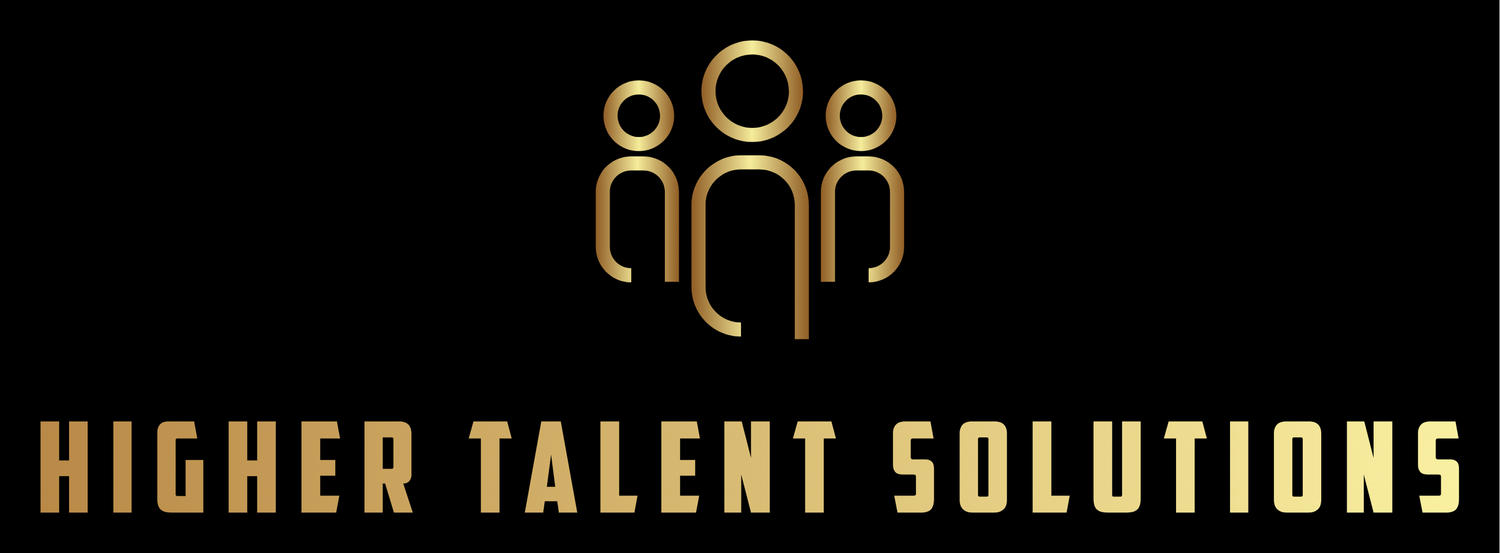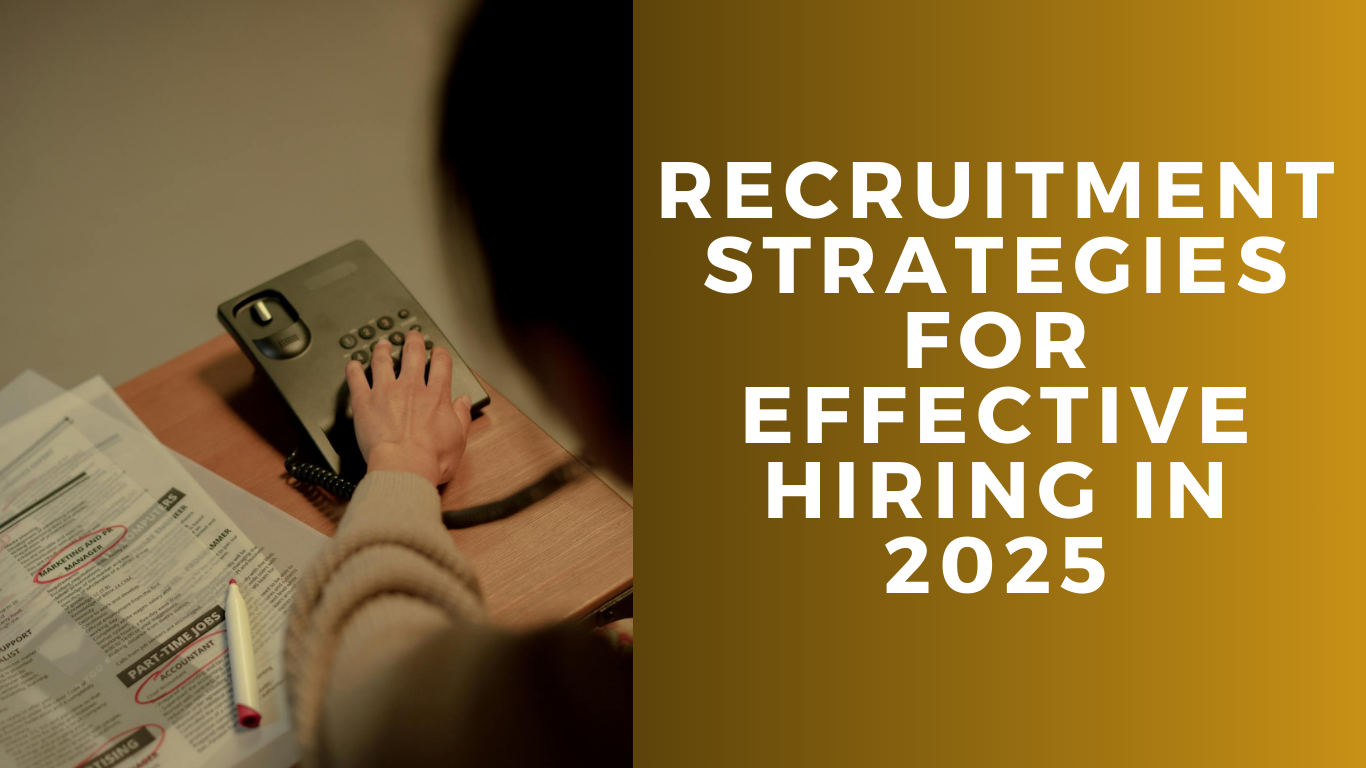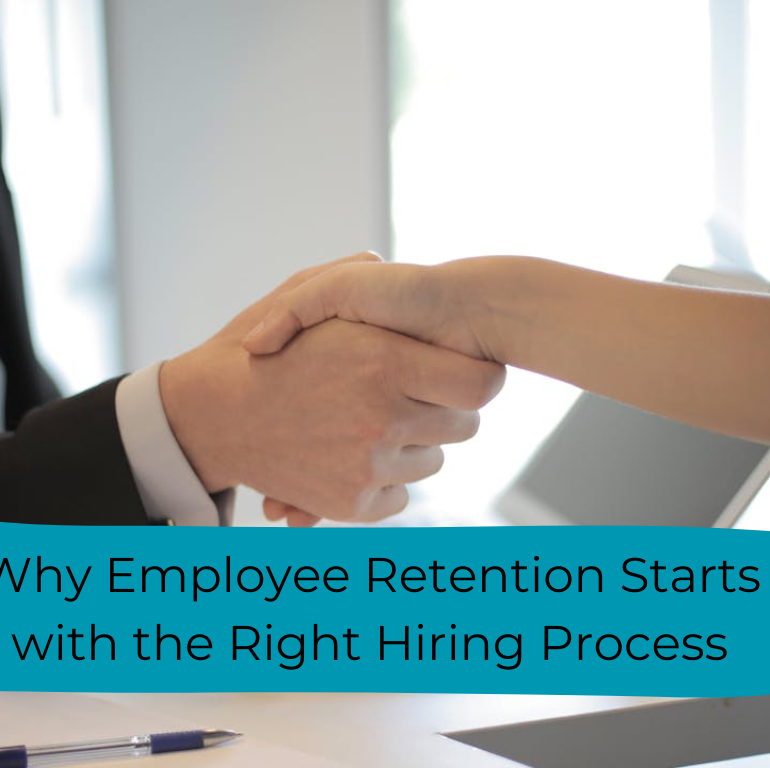Recruitment has always been a dynamic field, evolving with societal trends, technological advancements, and workforce expectations. As we step into 2025, the hiring landscape continues to shift, requiring companies to adopt innovative strategies to attract and retain top talent. This blog explores 10 recruitment strategies for effective hiring in 2025, ensuring your organization remains competitive in the talent market.

1. Embrace AI-Powered Recruitment Tools
Artificial Intelligence (AI) is revolutionizing recruitment by automating repetitive tasks such as screening resumes, scheduling interviews, and analyzing candidate data. Tools like chatbots provide real-time engagement with applicants, enhancing their experience.
Benefits:
- Speeds up the hiring process
- Reduces bias in initial screenings
- Improves candidate matching
2. Focus on Employer Branding
A strong employer brand is crucial in attracting high-quality candidates. Showcase your company’s culture, values, and employee benefits through social media, career pages, and online reviews.
Key Actions:
- Maintain an active presence on LinkedIn and Glassdoor
- Publish employee testimonials and success stories
- Offer virtual tours of your workplace
3. Leverage Social Media Recruiting
Social media platforms like LinkedIn, Twitter, and even TikTok are valuable tools for engaging with potential candidates. Use targeted ads, industry groups, and creative content to attract talent.
Best Practices:
- Post job openings with engaging visuals
- Use relevant hashtags to increase reach
- Host live Q&A sessions about working at your company
4. Develop a Comprehensive Employee Referral Program
Employee referrals remain one of the most effective recruitment methods. Incentivize your current employees to recommend potential candidates from their network.
Why It Works:
- Builds trust in the hiring process
- Reduces time-to-hire
- Often leads to higher retention rates
5. Prioritize Diversity, Equity, and Inclusion (DEI)
Candidates today expect companies to embrace DEI. In 2025, having a proactive approach to creating a diverse workforce is more important than ever.
Steps to Implement:
- Use blind hiring techniques
- Partner with organizations that support underrepresented groups
- Train hiring managers on unconscious bias
6. Offer Flexible Work Options
The demand for remote and hybrid work continues to grow. Flexible work arrangements are now a key factor for many candidates when choosing an employer.
What to Do:
- Clearly define remote and hybrid work policies
- Invest in tools for virtual collaboration
- Highlight flexibility in job descriptions
7. Optimize Job Descriptions
A well-crafted job description can make or break your recruitment efforts. Use concise, clear, and inclusive language to attract a broad pool of candidates.
Tips:
- Focus on must-have skills instead of listing excessive requirements
- Use gender-neutral language
- Highlight growth opportunities and benefits
8. Use Data-Driven Decision Making
Analytics tools help recruiters understand the effectiveness of their strategies. Track metrics like time-to-fill, cost-per-hire, and applicant conversion rates to identify areas for improvement.
Key Metrics to Monitor:
- Candidate source performance
- Quality of hire
- Offer acceptance rate
9. Engage Passive Candidates
Many top candidates are not actively job hunting but may be open to the right opportunity. Engage these passive candidates with personalized outreach and compelling employer value propositions.
Strategies:
- Use LinkedIn to identify potential candidates
- Share thought leadership content to build connections
- Offer informational interviews to spark interest
10. Invest in Upskilling and Internal Mobility
Internal talent is a goldmine often overlooked. By upskilling your current workforce, you can fill critical roles faster and foster employee loyalty.
How to Get Started:
- Provide access to online learning platforms
- Create clear career progression paths
- Encourage cross-departmental movements
FAQs
1. Why is employer branding important in recruitment?
Employer branding helps attract top talent by showcasing your company’s culture, values, and benefits. A strong brand improves candidate trust and makes your organization stand out in a competitive market.
2. How can AI improve recruitment efficiency?
AI streamlines recruitment by automating tasks like resume screening, interview scheduling, and candidate assessments. It also reduces bias and improves the accuracy of candidate matching.
3. What are some benefits of employee referral programs?
Employee referrals typically result in quicker hires, lower recruitment costs, and better cultural fit, leading to higher retention rates.
4. How can we ensure our hiring process is inclusive?
Adopt practices like blind hiring, use inclusive language in job descriptions, and provide training for hiring managers to address unconscious bias.
5. Why should companies focus on internal mobility?
Internal mobility reduces the need for external hires, saves costs, and boosts employee morale by providing career growth opportunities within the organization.
By implementing these strategies, your organization can stay ahead in the competitive hiring landscape of 2025. A well-rounded approach that combines technology, inclusivity, and a focus on employee experience is key to attracting and retaining the best talent.









